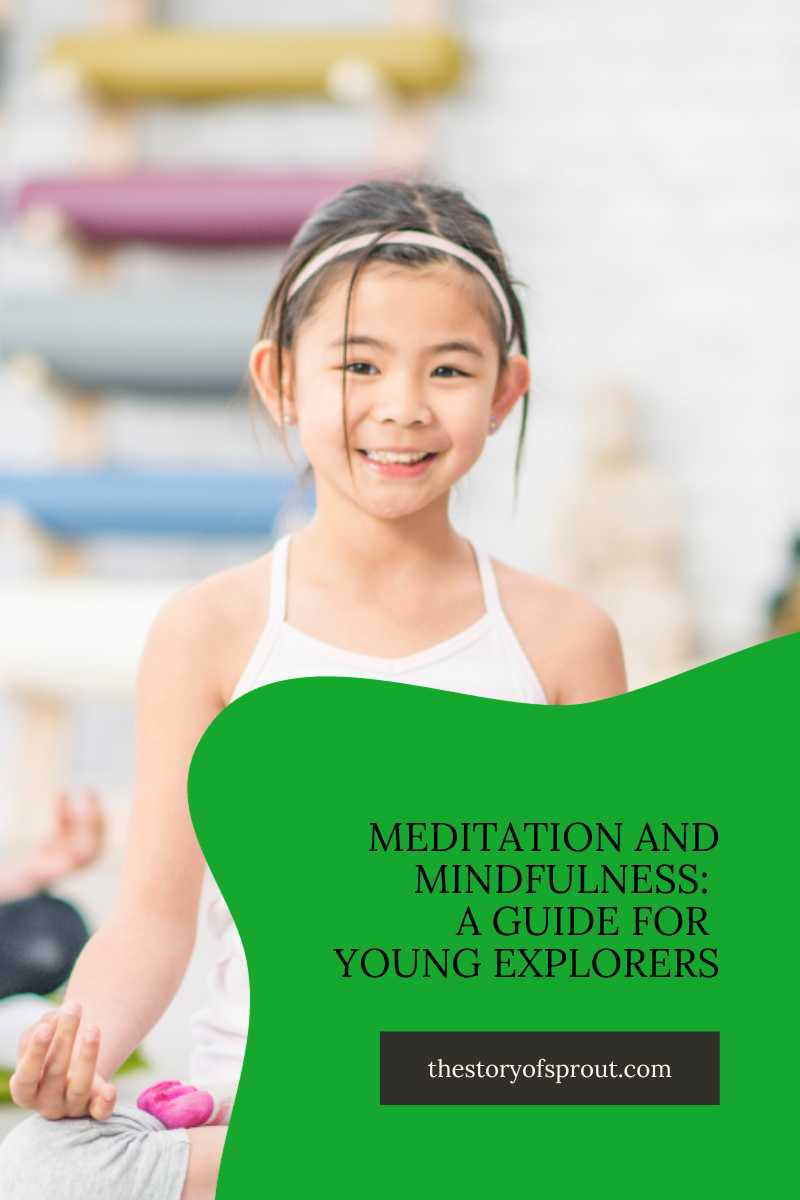
Meditation and Mindfulness: A Guide for Young Explorers
|
|
Time to read 4 min
|
|
Time to read 4 min
In the bustling world we live in, where screens and schedules dominate our daily lives, the importance of mindfulness and meditation is increasingly recognized. While these practices are often associated with adults seeking moments of peace and clarity, they hold immense value for young explorers as well. Introducing children to meditation and mindfulness can provide them with a toolkit of skills that foster mental and emotional well-being. In this guide, we'll explore the myriad ways in which meditation and mindfulness can benefit the young minds of our future.
The practices of meditation and mindfulness, unveil their immense potential in nurturing the minds and hearts of the youngest members of our society. As we embark on this insightful journey, we navigate the profound impact these practices can have on children's cognitive development, emotional well-being, and overall resilience. Join us in discovering how the intentional introduction of meditation and mindfulness to young minds serves as a guiding light, equipping them with invaluable tools to navigate the challenges of our dynamic world with a sense of calm, focus, and self-awareness.
Even young minds can experience stress, whether it's related to school, friendships, or family dynamics. Meditation offers a sanctuary of calm where children can learn to navigate their emotions and find balance amid life's challenges. By practicing mindfulness, they develop techniques to relax their minds and, in turn, their bodies.
Understanding and regulating emotions is a vital skill for children. Mindfulness teaches them to observe their feelings without judgment, fostering emotional intelligence. This self-awareness becomes a powerful tool, allowing young explorers to navigate the intricate landscape of their emotions with grace and understanding.
School demands a considerable amount of focus, and meditation can be a secret weapon for young learners. By engaging in mindfulness practices, children enhance their ability to concentrate, leading to improved academic performance and a greater appreciation for the present moment.
The journey of self-discovery is a lifelong adventure, and mindfulness is an excellent compass for children embarking on this quest. Through meditation, they learn to explore their thoughts and feelings, laying the foundation for a deeper understanding of themselves and their unique perspectives.
Mindfulness is not just about self-reflection; it extends to fostering compassion for others. Children can learn to approach the world with empathy, understanding the feelings and experiences of their peers. This newfound empathy contributes to the creation of a more harmonious and supportive social environment.
Quality sleep is crucial for growing bodies and minds. Meditation can be a soothing bedtime ritual, promoting relaxation and helping children develop healthy sleep patterns. The result? A well-rested young explorer ready to face the adventures of a new day.
In a world that often separates the mind from the body, mindfulness bridges the gap. Children learn to recognize the profound connection between their thoughts and physical well-being, promoting a holistic approach to health from an early age.
Life is filled with ups and downs, and mindfulness equips young minds with effective coping mechanisms. Instead of reacting impulsively, children can respond thoughtfully to various situations, developing resilience in the face of adversity.
Mindfulness encourages a non-judgmental acceptance of the present moment, fostering resilience. Young explorers discover the strength to bounce back from setbacks, equipped with a positive mindset that propels them forward.
Communication is a cornerstone of social interaction, and mindfulness enhances essential social skills. Through patience, empathy, and active listening, children can forge meaningful connections with their peers, creating a positive and supportive community.
Meditation empowers children with the ability to regulate their behavior and impulses. This skill becomes especially valuable in school settings and social interactions, laying the groundwork for a mindful and considerate approach to life.
Mindfulness promotes positivity by encouraging kindness, gratitude, and a general appreciation for life. Young explorers can carry this positive mindset with them, sowing seeds of optimism as they navigate the world.
In conclusion, introducing children to the world of meditation and mindfulness is akin to providing them with a treasure map for navigating the vast terrain of their inner selves and the world around them. By embracing these practices, young explorers can embark on a journey of self-discovery, resilience, and compassion that will serve them well throughout their lives. So, let the adventure begin!
